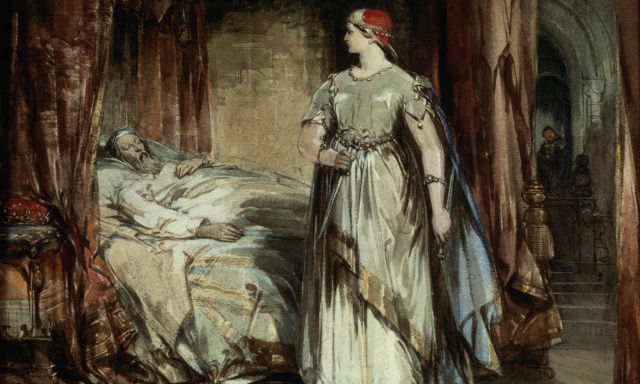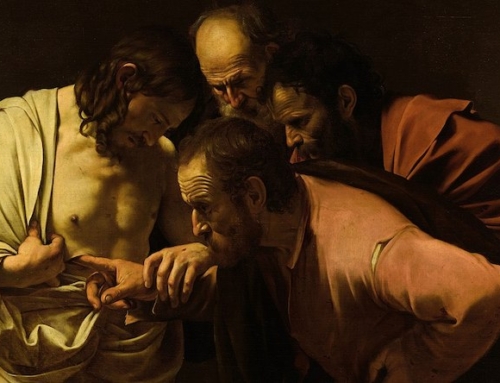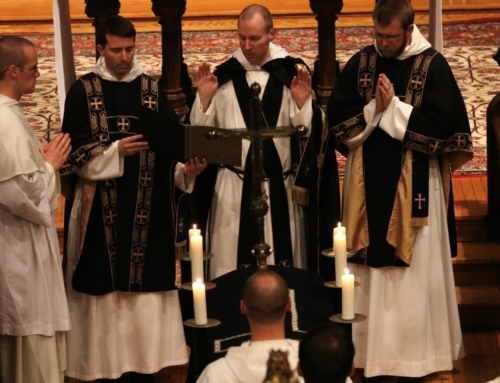In a famous scene of a famous play, a semi-conscious Lady Macbeth wanders around the stage and feverishly rubs her hands together in an attempt to clean blood from them, blood which only she can see. Out of pride and lust for power, she had ascended to the throne by plotting the King of Scotland’s murder. Despite the success of her plan, the weight of sin and guilt drew her into madness. Thus, we see her struggling with the blood: “All the perfumes of Arabia will not sweeten this little hand,” “Out, damned spot! Out, I say!” And yet the spot of blood remains. Nothing she does can clean them.
Her husband, Macbeth, once remarked to her, “For mine own good, all causes shall give way, I am in blood stepp’d in so far that, should I wade no more, returning were as tedious as go o’er.” He thought that killing a few more people would consolidate his power, but more bloodshed brought no peace. Such is the way of evil. Evil makes seemingly simple promises, but in return it always demands more and more. It never delivers.
Evil brought Lady Macbeth to despair. She is trapped by her deeds, and she has no hope. The blood that she had expected to give her a glorious crown gave her ruin, and she knows no redemption. Her hands are stained, seemingly forever.
Little does she know that there is, in fact, a blood capable of cleansing her hands. The saints, we are told, “have washed their robes and made them white in the blood of the Lamb” (Rev 7:14). They themselves sinned, but “they are justified by his grace as a gift, through the redemption which is in Christ Jesus, whom God put forward as an expiation by his blood, to be received by faith” (Rom 3:24-25).
God is a father who welcomes his prodigal children with fanfare and open arms. He is willing to forgive because he desires the children he created to be restored to their proper place: with him. God does not accept irredeemable situations. He wants to forgive, and God’s forgiveness can be scandalous to us because he desires to forgive even the worst sins, sins for which no one else can make satisfaction. He only asks contrition of the heart, confession to one of his priests, and penance.
No one can reverse all of the consequences of their sins, and, in cases of crime, they need to accept the penalties that justice demands. Nevertheless, we owe it to God to recognize and to accept his mercy. Thanks to God’s mercy, we should never despair. Heaven is possible, and we can be redeemed. With the sacrament of penance, even the worst sinner can turn back to God, trusting that when he prays, “Cleanse me with hyssop, that I may be pure; wash me, and I will be whiter than snow” (Ps 51:9), God hears his prayer and will clean even scarlet hands.
✠
Image: George Cattermole, Lady Macbeth







